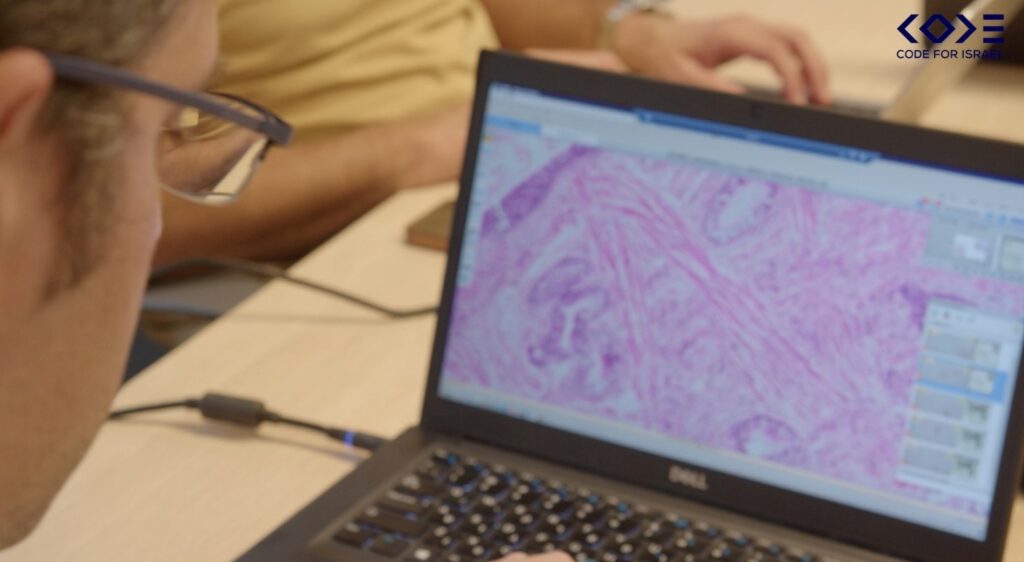Medical staff will now be able to carry out repeat tissue scans for cancer on patients, if needed, rather than sending them home and having to recall them.
According to estimates, five to 10 per cent of tissue scans need to be done again, usually due to issues in quality, but that only becomes apparent once it reaches the lab.
A group of volunteer hi-tech workers have now come up with an algorithm that alerts staff in real time, while the patient’s still there, if there’s a problem with the scan.
The scan can be re-done there and then, sparing the patient delay and ordeal involved in having to return to hospital.
The project, Pathomatic, will detect problems in scanning tissue samples and will alert laboratory staff in real time of a failure in the scan, so they can immediately perform a repeat scan or deal with the malfunction.
About a thousand scans are performed every day at the Ichilov Hospital, in Tel Aviv, but dozens need to be repeated. The algorithm that the volunteers ran has already been tested on scans with high success rates.
The project is part of the Code for Israel initiative, in which hundreds of hi-tech employees voluntarily work on technological projects that benefit Israeli society.
Sign up for our free weekly newsletter
SubscribeIt was established by the entrepreneur and venture capital investor Yasmin Lukatz, with the aim of harnessing the advanced human capabilities of high-tech to solve social challenges and lead positive movements in the country.
Seven volunteers from different companies in the fields of product development, management and design are taking part in the project, using their skills and knowledge for patients and cancer research.
The project is in collaboration with Prof Dov Hershkovitz, director of the Institute of Pathology at the Ichilov Hospital, and the Institute’s staff.
“In a short time, a small team of people from the worlds of product and development attacked the problem and succeeded in characterizing a simple technological solution – an algorithm that optimizes the work of the Institute of Pathology and beyond that – helps cancer patients receive adequate treatment,” said Yuval Nokrian, who leads the project at Code for Israel on a full volunteer basis.
“In addition, the technological solution we proposed is an infrastructure for adding additional algorithms and applications in the worlds of artificial intelligence that will help the institute’s work. On a personal level, it is a great sense of satisfaction to be a partner in such a significant and valuable activity, and also a great privilege to be part of this organization that combines two worlds I love – giving and technology.”
Related posts

Israeli AI Safety Tool Among TIME’S Best Inventions For 2024

TAU Team Discovers Mechanism To Eliminate Cancerous Tumors

Ashdod Port Investing In Startups As Part Of Innovation Strategy




Facebook comments